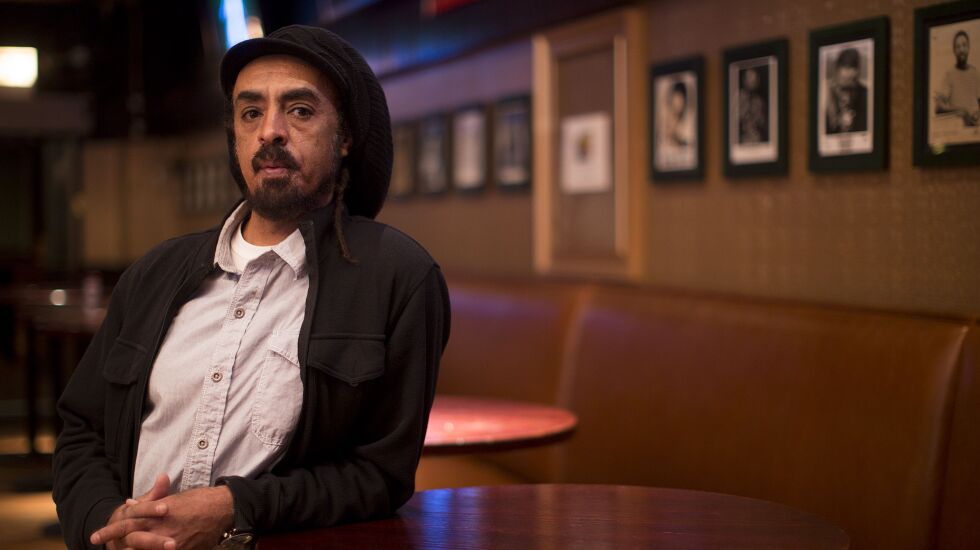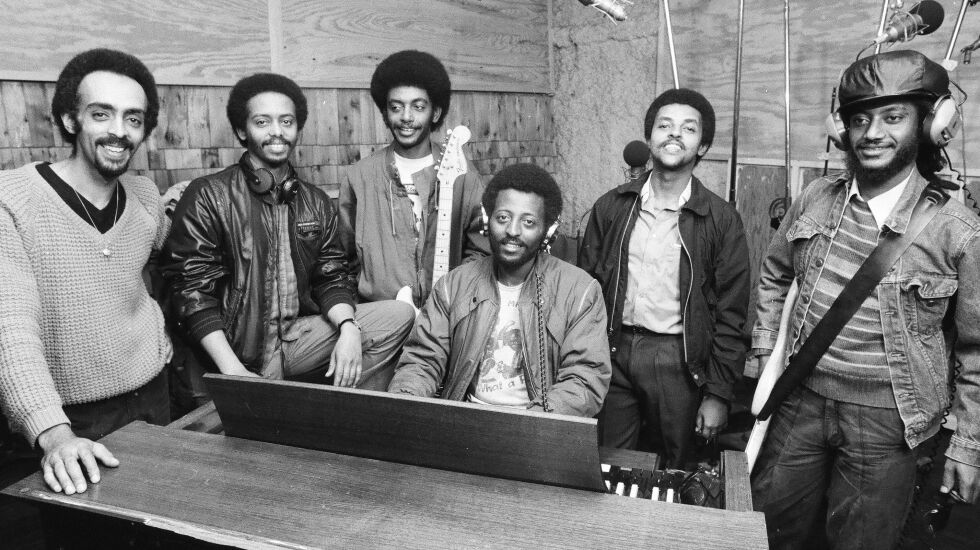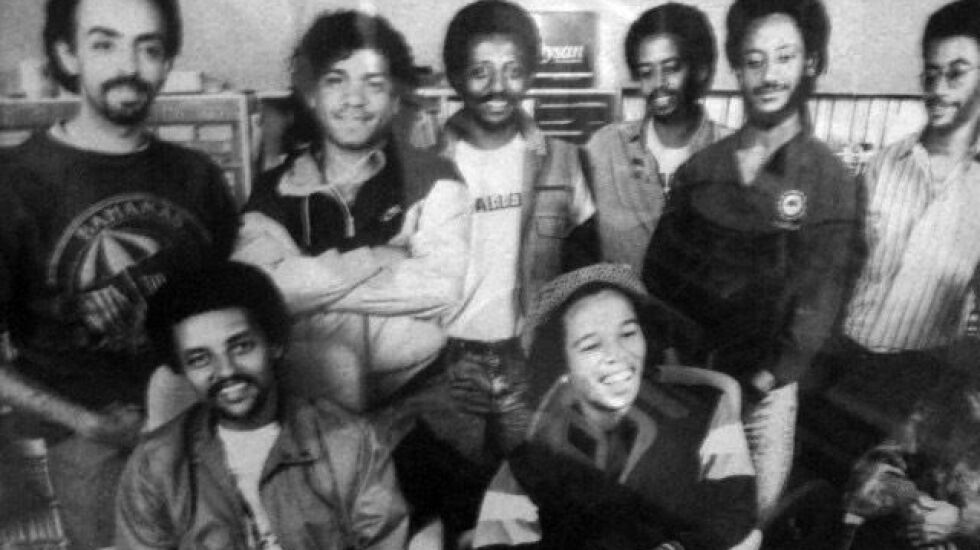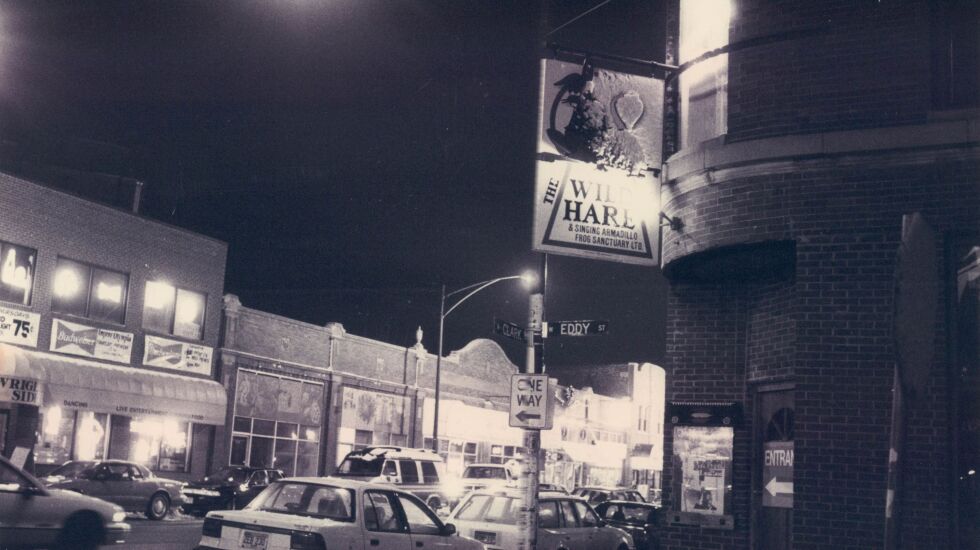
Asrat Aemro Sellassie rarely called attention to himself at the Wild Hare reggae club, and first-time visitors to the Chicago music venue could be forgiven for thinking he was just another patron.
That was the case for Syovata Edari, who used to sneak into the Wild Hare & Singing Armadillo Frog Sanctuary in the mid-’90s with her friends. She said she first noticed Mr. Sellassie hanging back, away from the crowd, in a VIP section.
“I admired him from a distance,” Edari said, adding that she would ask people at the venue, “Who is that guy?”
She later saw Mr. Sellassie perform with his band, Gizzae, in Madison, Wisconsin, and was immediately struck by his undeniable musical talent.
“I didn’t know anything about him,” Edari said. “I just loved his whole vibe. He was like the Prince of the reggae world. Cool, calm, mysterious and a musical genius.”
What she didn’t know was that Mr. Sellassie had already established himself as a reggae legend in the Midwest by that time.
The Ethiopian-born musician recorded with Ziggy Marley’s first band on their Grammy-winning albums and was a co-founder of the Wild Hare, which built a reputation as the mecca of reggae in America.

Mr. Sellassie died peacefully at his home in Chicago on Feb. 23. He was 68.
After he stepped off the stage that day in Madison, Mr. Sellassie and Edari exchanged numbers.
“It was one of those kind of soul mate type of vibes where not being together didn’t seem like an option,” Edari said.
The couple would eventually welcome a baby girl into their lives.
“Asrat was loved and known by many, but lived a pretty reclusive life, and despite his life as a musician, he seemed to enjoy his solitude,” Edari said, adding that he kept his reserved nature even when he was managing the Wild Hare.
“His demeanor wasn’t like anybody else's,” Edari said. “He stayed away from the crowd, just kind of looking over things. He was an entrepreneur, so he was always worried about how things were running.”
The Wild Hare has hosted performances from some of the most important artists in the genre, including Rita Marley, Jimmy Cliff, Toots and the Maytals and Shabba Ranks.
“It was nothing like I’d ever seen,” Edari said. “I’ve been to reggae clubs, even in Jamaica, and I have never seen anything like the Wild Hare. It also provided a stage for new bands to get visibility.”
Mr. Sellassie’s daughter, Emayu Edari-Sellassie, said she was basically raised in part by the community that frequented the Wild Hare. Though she lived in Wisconsin with her mother she spent every other weekend with her father, who often brought her along to the club.
“I would just be in the basement, and he’d go up and he’d do his thing and would have me play games on the computer, so I was always around,” said Edari-Sellassie, 23, adding that when she got older she was finally able to fully comprehend her father’s legacy.
“When I got older, I got to go there and be upstairs and have a drink, and I got to stand with him and watch him do the lights for a live performance,” she said. “It really drove home that understanding of what it meant for him, and to have these people come up to me in the club and be like, ‘Oh you’re Asrat’s daughter, he’s really done something great here, he’s really special, he’s done so much for everybody here.’”
Mr. Sellassie’s own musical journey began in the late 1970s with the afro-reggae band Dallol. The band was forced to leave Ethiopia because of a civil war and eventually landed in Chicago in the early 1980s.
The group began to make a name for itself by playing venues across the country until it got the break it was looking for. In 1982, Rita Marley, Bob Marley’s widow, invited Dallol to play in Jamaica on the first anniversary of Marley’s death.
It was then that Dallol teamed up with the group Ziggy Marley and the Melody Makers. Dallol became the group’s backing band for its two most important records, “Conscious Party” in 1988 and “One Bright Day” in 1989. Both albums won Grammy awards for best reggae album.

Mr. Sellassie was the percussionist on the projects, playing bongos, conga, tambourine, cabassa and wood block, and he even added some background vocals.
Ruphael Woldemariam, a Dallol bandmate who played drums, said the sessions for those projects were like magic, especially for “Conscious Party,” which was recorded in New York.
“We ended up recording 13 songs in six days, which was amazing,” Woldemariam said. “Basically what happened in the studio was really magic. Ziggy wrote the songs, and he would have his acoustic guitar, and he would play and sing, and everybody just chipped in their ideas. It just became alive.”
“Conscious Party” would go on to become certified platinum, and “One Bright Day” went gold.
The success of those albums allowed Mr. Sellassie and Dallol to tour the world with the Melody Makers. It was also during that time that Mr. Sellassie, Woldemariam and other band members co-founded the Wild Hare, originally across from Wrigley Field, in 1986.
That location closed in 2011, but Mr. Sellassie, Woldemariam and two others reopened the venue at 2610 N. Halsted St. in Lincoln Park the following year.

Through all of his accomplishments Mr. Sellassie remained true to himself, Edari said.
“He was humble, and that’s why a lot of people don’t really understand the history he holds,” Edari said. “He didn’t tell people much about himself. You had to actually talk to him to learn about him.”
Similarly, Edari-Sellassie described her father as a very private man. She learned so much more about her father’s past in the weeks after his death, especially from some of the hundreds who attended his traditional Ethiopian Orthodox Tewahedo Church funeral services over the weekend, she said.
“After him passing we were all just sharing stories and piecing so many things together that I think none of us really knew about him or understood about him,” Edari-Sellassie said. “Being at his funeral, and seeing all of the people that came out and all the lives that he touched it really drove home for me how much of an impact he had.”
Woldemariam said Mr. Sellassie was “a very, very kind, very thoughtful, very smart person. Not even a bad word would come out of his mouth. So many people are going to miss him.”
It’s hard to imagine now, but Mr. Sellassie’s life almost went in a completely different direction, Edari said. His family wanted him to be a doctor, and Mr. Sellassie was a pre-med student at Illinois Wesleyan University before he decided to pursue music for a living.
“He followed what moved him. He followed his love,” Edari said. “And he wanted to spread it to as many people as he could.”







